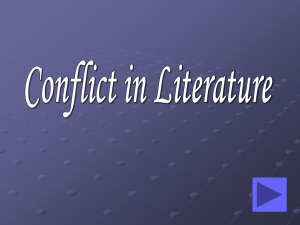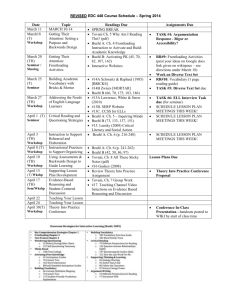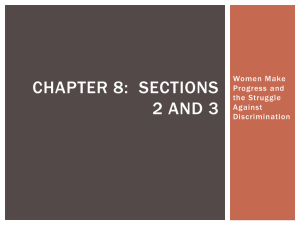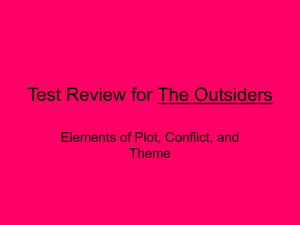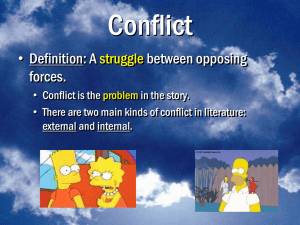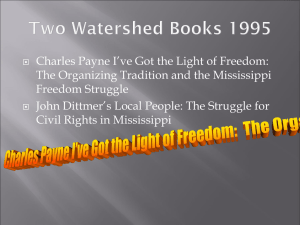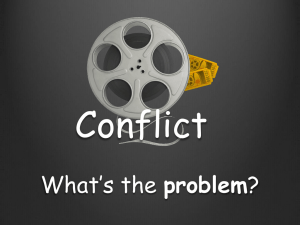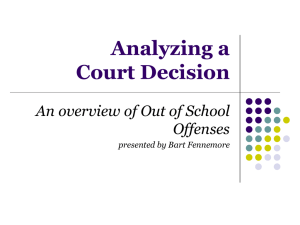Day 11 Rigor Accessibility
advertisement
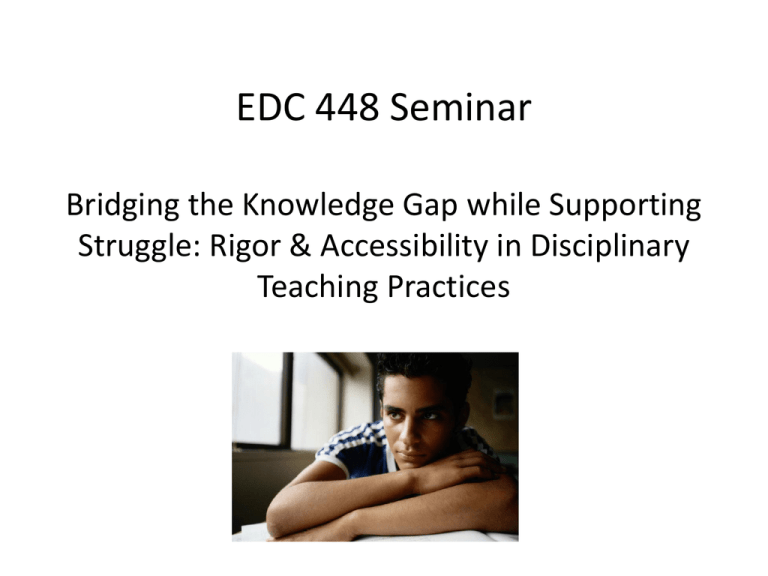
EDC 448 Seminar Bridging the Knowledge Gap while Supporting Struggle: Rigor & Accessibility in Disciplinary Teaching Practices The Case for Struggle? • Failure vs. Struggle • Struggle Alone vs. Struggle With Support • Productive Failure (Fisher & Fry, Ch 1, p. 11) = Supported Struggle – Role of “easy” texts with big, complex ideas – Role of guided high-level questioning before, during, and after reading – Role of conversation/dialogue during re-readings – Role of summary, synthesis, transformation What IS a complex text? Seminar Part 1: Getting Started – Noticing Good Teaching • What are ten effective teaching techniques that Ms. Chin uses that foster “supported struggle” with a complex text? 10 Effective Teaching Techniques for Supported Struggle 1. Pre-read with authentic purpose (character change) 2. Pre: Provide organizer (Beginning, middle, end) 3. During: Read hard text indep. for purpose (get familiar with character, language, and how change) 4. During: (Time 1) Annotate and note author craft 5. After: (Time 1) Dialogue/conversation with evidencebased reasoning 6. During: (Time 2) Revisit purpose to analyze more closedly 7. During: (Time 2) Think-aloud (notice strategy links) 8. After: (Time 2) Discuss with text-dependent questions 9. After: Respond/Transform (Write/new dialogue) 10. Together: Use dialogues and writing as multiple forms of formative assessment (to prepare for PARRC test!) LOW Reader’s Processing Ability HIGH How are you addressing the needs of each kind of student with the texts and tasks you select? HIGH Out-of-School Academic Knowledge LOW Teaching to the Match How can teachers be effective mediators between the academic knowledge demands of our curriculum and the out-of-school informal knowledge of our students? (Buehl, 89) • Students with Matchup Assets: (1, 2, 3) numerous but varied family interactions about/experiences with content; identity as a “smart” person; able to pick up new ideas easily • Students with Matchup Gaps: (4, 5, 6) higher processing skills, but few connections to their outside lives; OR lower processing skills BUT higher outside academic knowledge • Students with Mismatches: (7, 8, 9) moderate to low processing ability (special education perhaps) and moderate to low out-of-school experiences (often from poverty); additional complexities of ELL who may be “smart” in their culture, not not with English or American culture Buehl (p. 92) What are some areas in your curriculum that reveal significant knowledge gaps in X topic? What knowledge capital might students bring that might help you bridge the gap? Seminar Part 2 Challenges of your Topic Connections to Out-of-School Capital to Bridge Knowledge Gaps ?????? ????????? Seminar Part 2 • CONTINUING THE CONVERSATION: Many literacy researchers (Fisher, Fry & Lapp, 2012; Tovani, 2004) argue and the CCSS (2010) expect content area teachers to engage students with challenging text on a regular basis. However, Buehl (2011) describes important academic knowledge disparities (e.g., differences in processing ability and out-ofschool academic knowledge) that suggest not all texts are matched appropriately to student needs. He argues that teachers need to mediate these gaps by exploring potential “common-ground knowledge” (p. 91) that is essential for reading complex texts that build academic knowledge. Use the questions below to guide your selection of ideas and reactions to discuss in today’s seminar. • Goal: Consider your position and contribute – for homework, you will take a position and respond in writing Due March 27 – will explain on March 18 Homework Due March 18 after Spring Break: 1. Buehl A Chapter 4 on Frontloading (prepare to apply) 2. Essay on Rigor Vs. Accessibility
